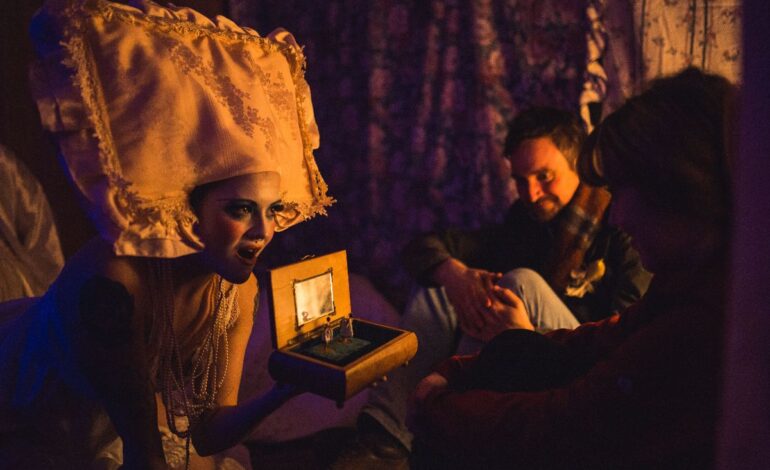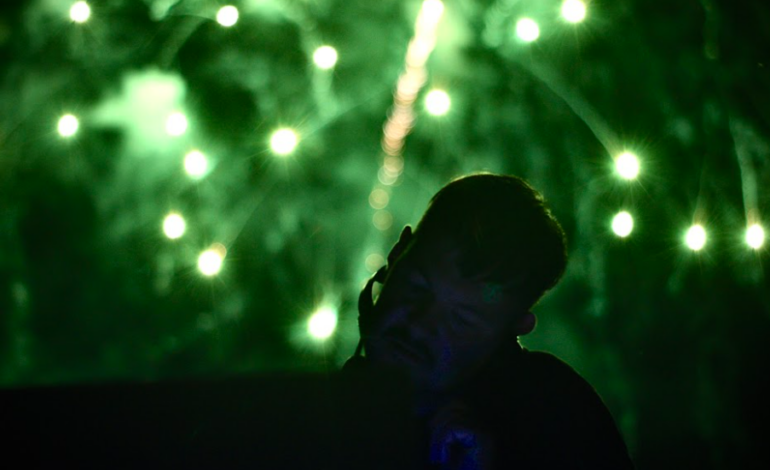With his latest single “Forever Changed,” Washington, DC-based singer-songwriter Stephen Sol steps into new emotional territory — stripped-back, raw, and achingly honest. Known for crafting songs that traverse spiritual serenity (“Águila”), nostalgic 90s textures (“Eternal Peace”), and cosmic love anthems (“Hum of Love”), Sol’s newest release feels like a culmination of everything he’s learned and let go of along the way.
As he readies a full-length debut under the moniker Stephen Sol & the 7, along with a live EP captured at the beloved Manor Time Studios, Sol sat down with Urbanista Magazine to reflect on his creative evolution, the healing power of collaboration, and what it means to balance artistic vulnerability with the demands of an ever-online world.
In this wide-ranging conversation, Sol opens up about late-night writing sessions, the influence of DC’s rich indie scene, and the surreal joy of watching a crowd light up — literally — during a live performance.
“Forever Changed” is your fifth release — how do you feel you’ve evolved as an artist since your debut?
Each release has had its own flavor. “Hum of Love” was this feel-good tune about cosmic connection, “Toxic” explored the darker corners of love, “Águila” carried a kind of spiritual serenity, and “Eternal Peace” leaned into 90s rock textures. “Forever Changed” feels like the most personal song I’ve released — it’s more stripped-back and emotionally exposed. Right now, I’m in the process of building a full-length album, aiming to release it in February 2026.
Can you tell us about the creative process behind this single? How long did it take from first idea to final master?
The chorus came from one of those cliche, late-night musician moments — just me and my guitar after a breakup. I wrote the first verse soon after, but then I let the song breathe for a while. It wasn’t until a year later that I came back to it with fresh ears. From that first spark to the final master, it was about a three-year journey. LEIF, who produced the track, added lots of subtle, organic touches on the piano — and the sound of birds chirping — which puts the song in a beautiful setting.
Who are some artists — past or present — that shaped the sonic world of this track?
“Get the Point” by My Morning Jacket has always stood out to me as a powerful breakup song — understated but full of weight. Dreemy Alpha, who directed the video, said it reminded him of John Lennon, which felt like a huge compliment. There’s definitely a bit of Iron & Wine in there too — that soft, acoustic atmosphere with layered harmonies and lots of space to breathe.
You’ve mentioned a debut full-length album and a Live at Manor Time EP are in the works. What can fans expect from those projects?
The Live at Manor Time EP is paired with a video series we filmed at the studio — it captures a raw, live energy with the band. We include a fun cover of “Short Skirt / Long Jacket” by Cake, and the rest are originals. The full-length album is more ambitious, pulling inspiration from concept albums like The Wall and Dark Side of the Moon — records that unfold like a full journey. I want it to feel immersive, with hidden layers and messages. The plan is to release the album under the band name Stephen Sol & the 7.
How does your environment — Washington, DC — influence your sound or writing?
The DC music scene is wonderful. Getting connected with The Wrizzards — an amazing Filipino-American collective — really opened up my world. Through working with LEIF, I got pulled into their creative orbit, and it’s been incredible meeting all the talented musicians and media artists in that community. There’s so much soul and collaboration in this city. Manor Time Studios, especially, has become a creative home for me — the energy there is inspiring and vintage. Almost like you’re stepping back in time to create music in a studio from 1971.
When building a track like this, how do you collaborate with producers, engineers, or other musicians to maintain your emotional intent?
The production on “Forever Changed” stayed pretty minimal. Our goal was for it to sound as rich and beautiful as possible — like a stripped-back Jacob Collier approach. When we play it live, we extend the outro to give the backing vocalists and band a moment to shine. Arquel, our drummer, adds a shaker in the live version that gives it this warm, earthy texture like you’re playing the song around a campfire.
How do you balance the vulnerability of songwriting with the promotional side of being an artist in today’s industry?
It’s a weird balance. You write something deeply personal… and then suddenly you’re editing reels and writing captions about it. With a song like this, it almost feels like you’re marketing your own heartbreak — which is kind of funny in a dark way. And honestly, the more emotionally wrecked you seem, the better it performs online. It’s like people can’t look away from a good trainwreck. I try to keep it grounded by bringing in humor. I’ve performed improv comedy for over ten years, and I have a few more playful and comedic songs coming down the pipeline. I’m excited to channel more of that personality into my content. It helps balance out the heaviness and feels authentic to my personality.
What’s been the most surprising lesson you’ve learned so far on your journey as an indie artist?
Honestly? How much of the journey has nothing to do with music. You’re booking shows, planning rehearsals, editing videos, managing social media— it’s a lot of logistics. I appreciate the moments when I get to just play, either solo or with the band. That’s the part that feels like magic sometimes.
Are there any specific live performance moments that have made you feel especially connected to this song or your audience?
We played it at Union Stage in DC, and mid-song, people in the crowd pulled out their phone lights. It was beautiful and surreal. I wish they were lighters but that’s probably a fire hazard in 2025 indoors. A friend told me that the lyrics hit her hard and she almost cried — moments like that are a good reminder that music can move people.
How do you define success at this stage in your career — and has that definition changed over time?
Things are picking up fast, which is exciting. We’ve had three sold-out shows recently and are planning a headline tour along the East Coast — that kind of momentum still feels surreal. It’s easy to fall into the trap of comparison, but I’ve learned to define success through the moments that feel most real: creating music that challenges and fulfills me, collaborating with LEIF and the band, and connecting with strangers who find something of themselves in the songs. I want to keep making work I’m proud of and reaching for those bigger milestones. Honestly, getting to release an album that I put my heart into already feels like a dream come true.


